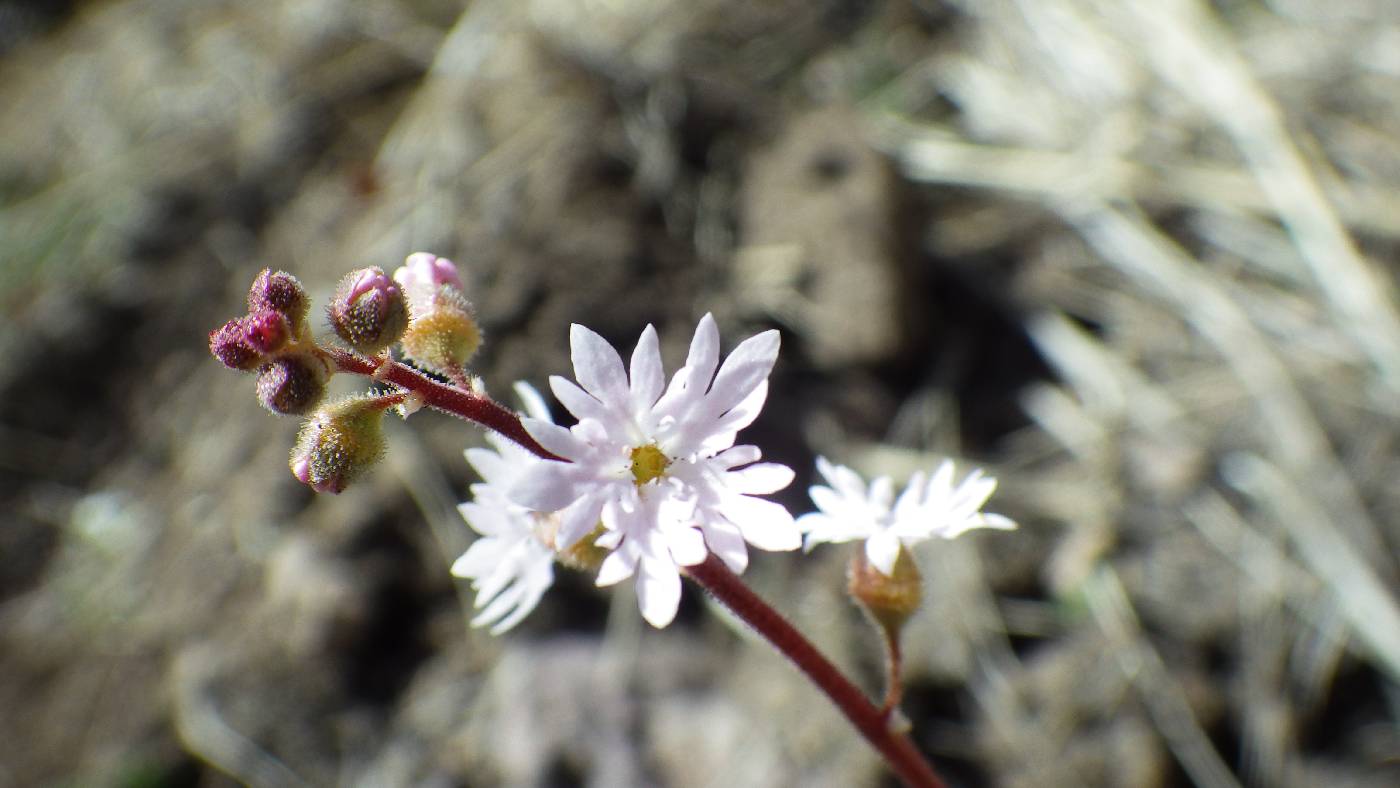Lithophragma
|
Family: Saxifragaceae |
Herbs, rhizomatous, not stoloniferous; caudex sometimes bearing bulbils. Flowering stems erect, leafy, 8-85 cm, stipitate-glandular. Leaves in basal rosette and cauline; cauline leaves (1-)2(-10), usually alternate (opposite in L. cymbalaria), unlobed, lobed, or palmately compound, sometimes with bulbils in axils; stipules present; petiole stipitate-glandular; blade rhombic or orbiculate to reniform, lobed, base cordate, hastate, rounded, ligulate, or cuneate, ultimate margins entire or toothed, apex obtuse or acute, surfaces often stipitate-glandular; venation palmate. Inflorescences compact or lax racemes, arising from axillary buds in basal rosette, 2-12(-25)-flowered, sometimes flowers solitary, (flowers sometimes replaced by bulbils), bracteate. Flowers: hypanthium partially adnate to proximal 1/2 to entire length of ovary, free from ovary 1-2 mm, green; sepals 5, green tinged with red; petals 5, white or pink; nectariferous tissue inconspicuous; stamens 10, (inserted on hypanthium, inner whorl attached proximal to point of petal insertion); filaments filiform; (anthers cordate); pistil 3-carpellate; ovary superior to 1/2 or almost completely inferior, 1-locular, carpels fully connate at ovaries; placentation parietal; styles 3; stigmas 3. Capsules 3-beaked. Seeds (50-200), usually dark brown, ovoid, smooth, wrinkled, or tuberculate. x = 7. RHIZOMES: slender, with bulblets, without scales. LEAVES: basal and cauline, lobed to compound, fewer and smaller upward; blades more or less circular-cordate, the margin lobed to crenate INFLORESCENCE: racemes. FLOWERS: actinomorphic; hypanthium partly fused to ovary; sepals green, erect; petals lobed or toothed in ours; stamens 10; ovary less than half inferior in ours, unilocular; nectaries obscure; placentae 3, parietal; styles 3. FRUITS: 3-valved. SEEDS: smooth in ours. NOTES: 12 spp. in w N. Amer. (Greek: litho = rock + phragma = partition, from habitats). Taylor, D. 1965. Univ. Calif. Publs. Bot. 37:1-122. Generic names ending in -phragma- are considered of neuter, not feminine, gender. REFERENCES: Elvander, Patrick. 1992. Saxifragaceae. Ariz.-Nev. Acad. Sci. 26(1)2. |

